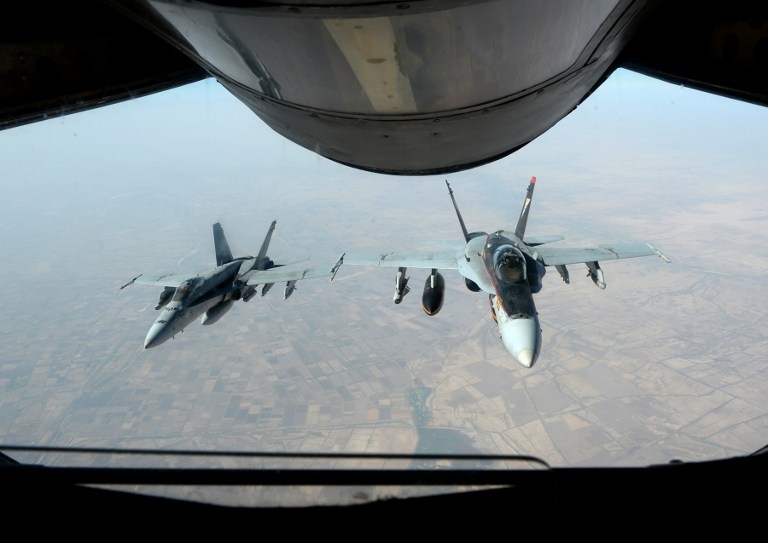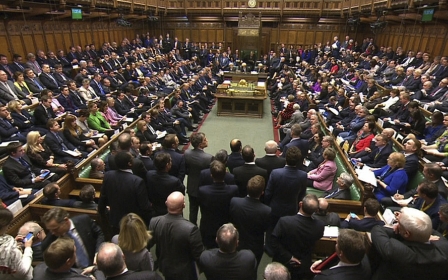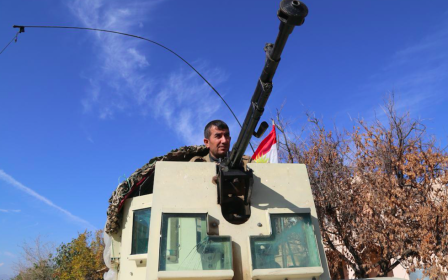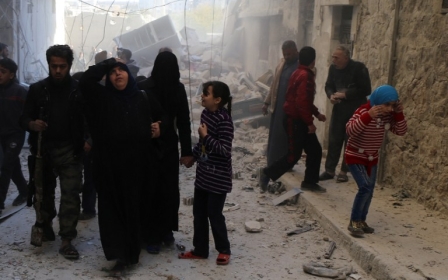IS finance chief confirmed killed in air strike: US

The Islamic State (IS) group's finance chief has been confirmed killed in a coalition air strike last month, US officials said on Thursday.
Abu Saleh was killed in late November, US military spokesman Colonel Steve Warren said in a videoconference from Baghdad, calling him "one of the most senior and experienced members" of the group's financial network.
The US government's envoy for the anti-IS fight, Brett McGurk, said on Twitter that Abu Saleh was killed along with two associates "as part of coalition campaign to destroy ISIL's financial infrastructure," describing him as the group's "finance minister".
Abu Saleh's real name is Muwaffaq Mustafa Muhammad al-Karmush, described in a State Department terrorist blacklist as a 42-year-old Iraqi.
"Killing him and his predecessors exhausts the knowledge and talent needed to coordinate funding within the organisation," Warren said.
The military spokesmen said two other figures in IS fundraising networks also were killed in coalition air strikes in late November.
They were identified as Abu Mariam, an enforcer and senior leader in IS extortion networks, and Abu Waqman al-Tunis, who Warren said coordinated IS's transfer of people, weapons and information.
Abu Mariam appears on the State Department terrorist list as Mounir Ben Dhaou Ben Brahim Ben Helal, a 32-year-old Tunisian.
The US-led coalition has been targeting IS leaders in Syria and Iraq with air strikes for over a year to try to pick apart its command structure.
After the attacks in Paris last month, the United States said it is deploying a special operations unit in Iraq that will be able to mount raids into Syria to capture or kill IS leaders.
"We want this expeditionary targeting force to make ISIL and its leaders wonder when they go to bed at night, who's going to be coming in the window," US Defense Secretary Ashton Carter told a Senate hearing on Wednesday.
In London, the US Treasury's acting undersecretary for terrorism and financial crimes, Adam Szubin, said IS derives most of its funding from economic activity in the territory it controls.
It has reaped more than $500 million in black market oil sales, looted bank vaults captured in Iraq and Syria, and raised millions more through extortion.
But to run what amounts to a mini-state, it needs steady and renewable sources of funding, and to do that it needs access to the international financial system to move money and import supplies, according to Szubin.
"We are targeting both of these dependencies - ISIL's ability to generate revenue, and its ability to use that revenue," he said in a speech to the Chatham House think tank.
"Most recently, the coalition launched a military campaign – Tidal Wave 2 - which included precision strikes against ISIL's key energy assets: oil fields, refineries, and tanker trucks.
"We believe these air strikes are markedly degrading one of ISIL's most important sources of funding," he said.
New MEE newsletter: Jerusalem Dispatch
Sign up to get the latest insights and analysis on Israel-Palestine, alongside Turkey Unpacked and other MEE newsletters
Middle East Eye delivers independent and unrivalled coverage and analysis of the Middle East, North Africa and beyond. To learn more about republishing this content and the associated fees, please fill out this form. More about MEE can be found here.




